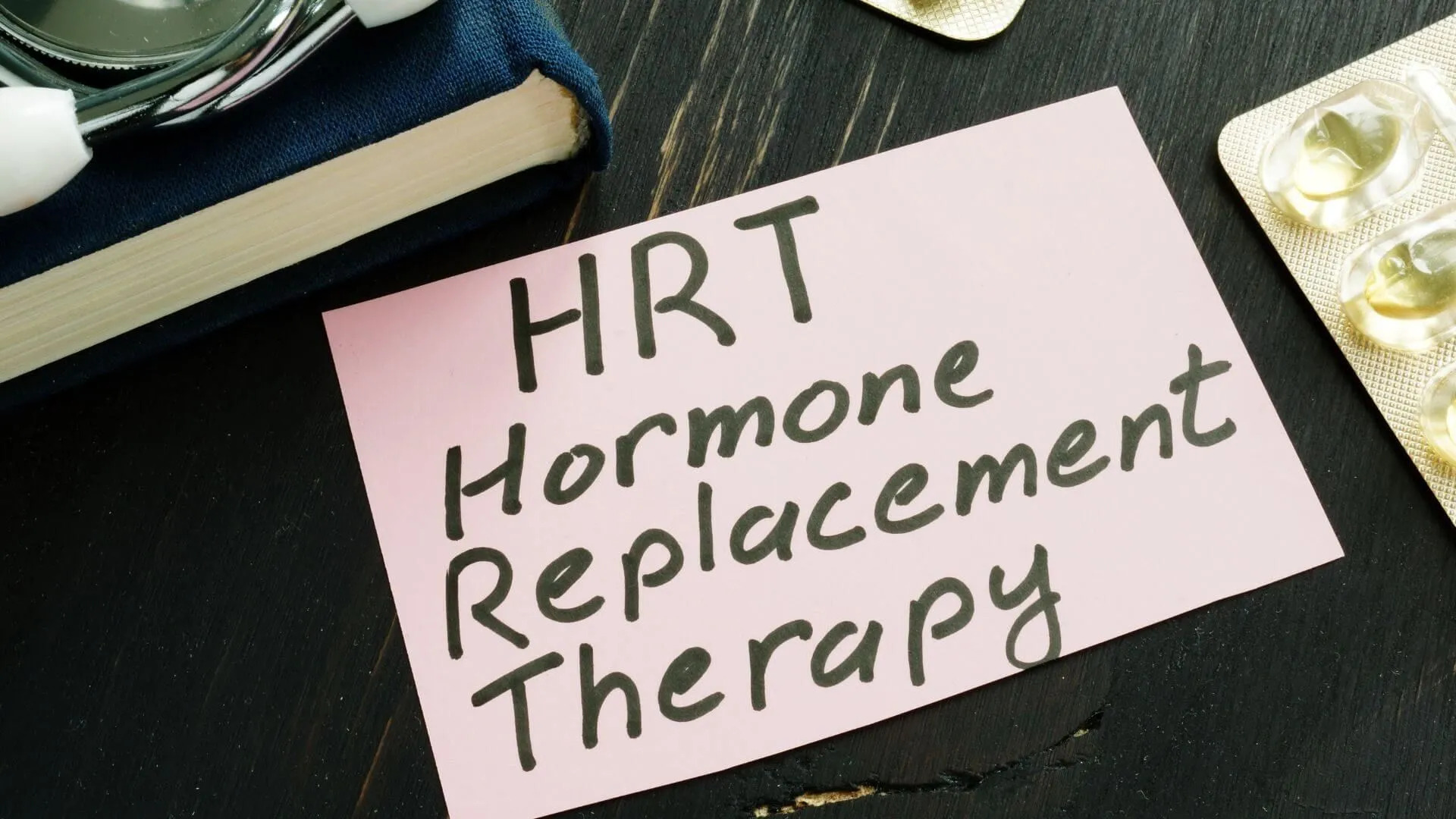Hormone Replacement Therapy (HRT) for women is a crucial topic in the field of women’s health and wellness. This therapeutic approach addresses hormonal imbalances in women, particularly during menopause, by supplementing the body’s natural hormones. HRT encompasses a range of treatment options, each tailored to the needs of the individual woman, aiming to alleviate discomfort and improve overall health and well-being. This discussion will delve into the multifaceted aspects of Hormone Replacement Therapy, its benefits, potential risks, and its pivotal role in promoting hormonal balance for women across the globe.
Understanding Hormonal Imbalances in Women: The Role of Hormone Replacement Therapy

Hormonal imbalances in women are quite common, especially during periods of major physiological change like menopause. During menopause, levels of primary female hormones like estrogen and progesterone decrease significantly, leading to a range of symptoms from hot flashes and night sweats to mood swings and depression. This phase can be a challenging time for many women, causing discomfort and significant changes in their quality of life.
Hormone Replacement Therapy (HRT) offers a promising solution to these imbalances. By supplementing the body’s natural hormones, HRT can help to alleviate the symptoms associated with menopause and restore hormonal balance.
It’s a customized treatment, meaning the type, dose, and delivery method of hormones are tailored to the specific needs of each woman. By doing so, HRT not only provides symptomatic relief but also contributes to enhancing overall health and well-being during this transformative phase of a woman’s life. It’s important to note, however, that while HRT can offer significant benefits, like any therapeutic approach, it may also carry certain risks. Always consult a healthcare professional for personalized advice.
Types of Hormone Replacement Therapy for Women: A Customized Approach

HRT treatment is typically categorized into two main types – systemic hormone therapy and low-dose vaginal preparations of estrogen. Both types are designed to cater to the unique needs of each woman and differ mainly in their method of application and the extent of their effects.
- Systemic hormone therapy: This is the most effective treatment for relieving common menopausal symptoms such as hot flashes and night sweats. Systemic estrogen, which can be taken orally, through the skin (patches, gels, creams, sprays), or by injection, can also ease vaginal symptoms of menopause, such as dryness, itching, burning, and discomfort during intercourse. The therapy is often prescribed in combination with progesterone for women who still have their uterus to protect against endometrial cancer.
- Low-dose vaginal preparations: These involve lower doses of estrogen administered directly to the vagina via creams, tablets, or rings. This form of therapy specifically treats the vaginal and urinary symptoms of menopause, such as dryness, discomfort during intercourse, and urinary symptoms. Because the dose of estrogen in this form of HRT is lower, it generally doesn’t aid in addressing hot flashes, night sweats, or protection against osteoporosis.
By understanding these different types of HRT, healthcare professionals can personalize treatment plans to meet the unique hormonal needs of each woman. This individualized approach to treatment ensures that women receive the most appropriate and effective care for their specific symptoms and circumstances.
Benefits of Hormone Replacement Therapy: Alleviating Menopausal Symptoms

Hormone Replacement Therapy (HRT) boasts several impressive benefits, particularly when it comes to reducing the often debilitating symptoms of menopause. Through the targeted supplementation of hormones, these treatments can provide significant relief for women experiencing these physiological changes.
- Reduced Hot Flashes and Night Sweats: Hot flashes and night sweats are some of the most notorious symptoms of menopause, often causing immense discomfort. By restoring hormonal balance, HRT can notably minimize the frequency and intensity of these symptoms, thereby enhancing a woman’s quality of life.
- Stabilized Mood Swings: The hormonal changes during menopause can often precipitate severe mood swings, which may impact mental health and overall well-being. HRT can help stabilize these mood fluctuations, promoting emotional stability and mental well-being during this challenging phase.
- Improved Sleep: Menopause can often disrupt sleep patterns, leading to insomnia or irregular sleep. HRT has been shown to improve sleep quality by addressing hormonal imbalances, allowing women to maintain normal sleep cycles, and aiding in overall health and vitality.
By relieving these and other symptoms, HRT can significantly ameliorate the menopausal experience, helping women maintain their health, comfort, and quality of life throughout this natural phase of life.
Balancing Hormones for Improved Health and Wellness: The Wellness Journey

Achieving hormonal balance through Hormone Replacement Therapy (HRT) can contribute significantly to overall health and wellness in women, especially during and after menopause. HRT’s role in alleviating menopausal symptoms such as hot flashes, mood swings, and sleep disruptions is well understood, but its impact extends far beyond symptom relief.
A balanced hormonal state can result in enhanced mental clarity and focus, leading to improved productivity and general well-being. It can also contribute to better bone health. A decline in estrogen during menopause can lead to loss of bone density, increasing the risk of osteoporosis. HRT can help fortify bone strength and reduce the risk of fractures.
Furthermore, regulated hormones can support healthy skin, hair, and nails, and also help maintain a healthy libido. As with any medical intervention, decisions about HRT should always be made in consultation with a healthcare professional, taking into account the individual woman’s health history and lifestyle.
In this journey towards enhanced health and wellness, achieving hormonal balance through HRT could be a game-changer for many women.
A Woman’s Hormonal Journey: Empowering Women Through HRT

Empowering women with knowledge about their hormonal health and the available HRT options is of paramount importance. Hormones play a vital role in maintaining the balance and function of the body, and any imbalance can lead to a host of symptoms and health issues. By educating women about their hormonal health, we can enable them to become proactive participants in their healthcare journey. Understanding HRT options allows women to make informed decisions about their health, considering potential benefits and risks. Ultimately, knowledge fosters confidence and control, enabling women to navigate their hormonal journey with clarity and conviction. In essence, empowering women with this knowledge is a significant step towards promoting comprehensive women’s health and wellness.
Bio-Identical Hormones vs. Synthetic Hormones: Choosing the Right Hormone Therapy
When choosing Hormone Replacement Therapy (HRT), understanding the difference between bio-identical and synthetic hormones is crucial.
Bio-Identical Hormones are derived from plant estrogens and are chemically identical to those produced by the human body. They are custom-made by a pharmacist, based on individual hormonal needs, potentially minimizing side effects.
Synthetic Hormones are manufactured hormones designed to mimic the function of natural hormones. They are mass-produced in set doses, ensuring uniform quality and safety standards.
Both bio-identical and synthetic hormones have pros and cons. Bio-identical hormones may provide a closer match to an individual’s needs but lack FDA oversight. Synthetic hormones undergo rigorous quality control but may not provide the bespoke match to a woman’s unique needs.
Before deciding on the right HRT, have a thorough discussion with a healthcare provider considering personal health history, symptoms, and lifestyle. Choose the right HRT with careful consideration and professional guidance.
Personalized HRT Plans: Tailoring Treatment to Individual Needs and Goals
Customizing menopausal hormone therapy (MHT) is essential for effective treatment. By tailoring the treatment to address menopause symptoms, such as vaginal dryness, and considering individual hormonal profiles and health histories, women can receive personalized care. Factors like dosage, administration method, and lifestyle choices can impact the effectiveness of the treatment. Regular monitoring and open communication with healthcare providers allow for necessary adjustments. This personalized approach empowers women on their hormonal health journey, especially those experiencing early menopause, with the benefits of combined hormone therapy.















